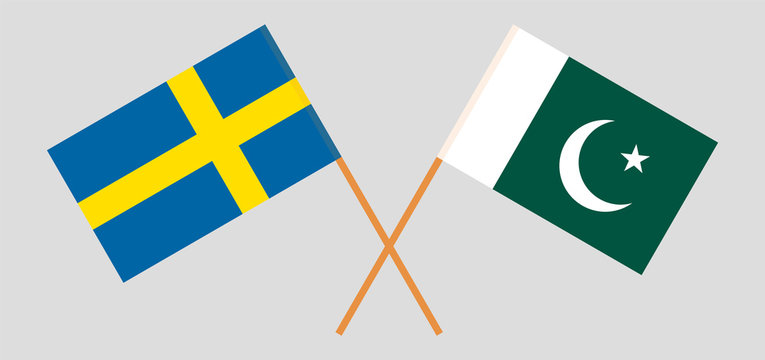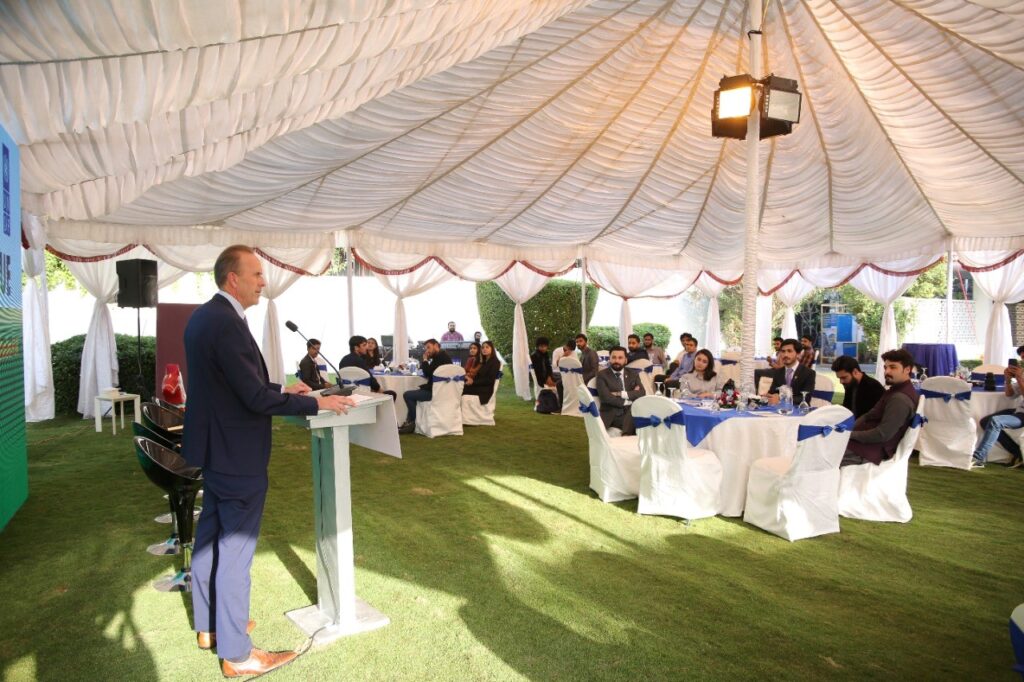
The challenges posed by the climate crisis are enormous. In these extreme challenges, I found hope in Sweden while participating at Stockholm+50 conference this year. In Stockholm, I saw a transparent sky connecting with land in the highest esthetic and romantic way. From drinkable tap water to clean air, Stockholm has attracted millions of young tourists every year. Clean tap drinking water and a healthy natural environment are core indicators of modern day climate diplomacy. This is a hope where we can start our collective struggle to meet the challenges of climate change.
Today, Climate Change defines global challenges, and the global south is at a defining moment. From shifting weather patterns and rising sea levels to threatened food production and increased catastrophic flooding, the scope and magnitude of climate change’s effects are unprecedented.

The repercussions not only threaten people’s livelihoods and impair development, but raise important geopolitical questions that touch upon the heart of international politics, sovereignty, territorial integrity, and access to resources such as water, food, and energy. The climate crisis has the potential to cause significant and highly uncertain impacts on societies, undermining human security and increasing the risks of conflict and instability. Addressing them requires a global-level strategic and coordinated response. This is where climate diplomacy comes in.
Developing countries, commonly known as the Global South, have increased the depth and breadth of their cooperation in climate diplomacy based on solidarity, shared values, and common needs and interests through South-South Cooperation (SSC). Several milestones, such as the historic Bandung Conference in 1955, the formulation of the Group of 77, and the Buenos Aires Plan of Action for Promoting and Implementing Technical Cooperation among Developing Countries (BAPA) adopted in 1978. Since 1994, the Commission on Science and Technology for Sustainable Development in the South – COMSATS_ an intergovernmental international organization of 27 member countries is working in the field of socio-economic and technological development to meet the challenges of sustainable development including climate crisis in the global south with the scientific collaboration of various international organizations.
In fact, over the course of the next century, the temperature of the earth is expected to increase by at least 2 degrees centigrade. This year’s extreme weather conditions, particularly in Pakistan, are actually a “wake-up call” about issues such as food security, extreme weather, economic upheaval, and other risks posed by climate change that could affect countries all over the world.
According to the Global Climate Risk Index 2021’s list of countries, Pakistan is at the top in global south on the scale of climate change vulnerability. It has been ranked 8th as the most vulnerable country to catastrophic impacts of climate change. In almost 20 years -from 2000 to 2019- the nation experienced 173 extreme weather-related loss events, financially damaging the economy of USD 3.8 billion.
While Pakistan is on the front line of a global climate emergency, there are other nations that are leading the charge to combat this emergency. As an environmental pioneer, Sweden has always taken pride in being at the forefront of issues like climate justice, gender equality, and international aid. It has contributed the highest amount of international aid per capita, was the first nation to pass an environmental protection act, and also the first nation to implement a feminist foreign policy. The nation has always looked outward, never in.
Since 1976, Sweden has substantially increased its economic output while at the same time lowering its carbon emissions and imposing stricter pollution controls. The government of Sweden has also established a number of ambitious sustainability goals, such as cutting out the use of fossil fuels by the year 2045 and powering the entire country with 100 percent renewable energy.
In June, the Swedish Ambassador to Pakistan, H.E. Mr. Henrik Persson, while addressing the audience at Sweden Day, hosted in collaboration with prominent Swedish companies, stated that owing to its green industrial revolution, Sweden is well underway to becoming the first fossil-free, zero-emissions welfare state in the world by the year 2045.
Sweden has always developed higher aims of creating a better and fairer world by fighting for global sustainability. The country has also offered cooperation and collaboration with Pakistan on various issues of climate change and the environment.
Swedish Ambassador Henrik Persson, at a recent follow-up event with the youth dialogue participants of Stockholm+50, hosted by the Swedish Embassy in collaboration with Stockholm+50 Youth Task Force, UNDP, and WWF Pakistan, recognized the cordial relationship between the two countries and spoke about prioritizing environmentally-friendly development and building climate resilience in Pakistan. Earlier at the launch of the awareness campaign on sustainable living standards in Islamabad, he also stated that both Pakistan and Sweden have a significant amount of potential for collaboration in the fields of environmentalism and sustainable living.
Meanwhile in last month, embassy of Sweden in Pakistan, with the collaboration of the Youth Task Force on climate change and other partners, organized a dialogue between youth and other key stakeholders. The purpose of the youth dialogue was to educate Pakistani youth about their role in multilateral policymaking, such as the Stockholm+50 International Meeting, and climate negotiations under the UN Framework Convention on Climate Change Conference of Parties (COP 27).
Sweden has always brought something new to the table and generated new momentum for change. With the transition from a resource economy to a bio-economy, Sweden is pioneering ways of the use of natural, 100 percent recyclable materials. In addition to reducing emissions, bio-economy entails attempting to use natural processes to produce energy, industrial products, and much more. It is the most efficient way of making products more eco-friendly. For Pakistan, to combat climate change, it has to learn from Sweden to invest in green technology, use more natural domestic resources and develop methods to become more sustainable.
The key to a sustainable economy is changing how consumers satisfy their needs. If things can be discarded they can be recycled as well, but it all depends on changing consumer behavior. Every product has a defined life cycle and consumers will have to transform themselves into users as opposed to owners. The Swedish government has been doing this since 2015 and even included the circular economy in its annual address to parliament.
Pakistan also has to adopt the mode of the circular economy. A circular economic system will eventually lead to green economic transformation. In the process of the development of a circular economy, the State Bank of Pakistan has to play an essential role by adopting Green Banking. Green financing, an integral component of Green Banking, should be made available to innovative businesses whose business models incorporate the principles and practices of the circular economy. The government should provide a variety of tax incentives and other benefits to businesses that adopt circular economic principles in order to promote environmental and social sustainability.
In addition to adopting ways from Sweden, it is also imperative for Pakistan to enhance its bilateral cooperation and combat climate issues. The Swedish government’s initiative of green environment and trade in green diplomacy is something Pakistan needs to get fully involved in. Protecting the environment and developing society are part of the same challenge, which both countries are willing to tackle by working together innovatively.
Climate change is a destabilizing factor that needs to be considered in efforts to build resilience, while promoting conflict-sensitive climate action contributes to stability. The climate crisis is a global issue touching upon diverse areas of international and foreign policy and climate diplomacy encompasses all diplomatic engagement relating to climate change.
The political will from the highest governmental levels in developing countries is vital for including South-South and Triangular Cooperation as an element of the national development strategy, mainstreaming it into the national consciousness, as well as relevant legislative and regulatory instruments.

About Author:
Engr. Qaiser Nawab currently serving at Commission on Science and Technology for Sustainable Development in the South – COMSATS, is a Pakistani Climate Youth Leader, UN SDGs Advocate and an expert on Youth Development in the Global South. He can be reached at qaisernawab098@gmail.com

